Mother’s Day is one of the most popular celebrations in Mexico. Every year there’s a strong Marketing investment from all types of companies that want to capitalize on the day of “la reina de la casa” (the home’s queen). But besides this, it’s a very ingrained festivity among Mexicans. The mother’s figure has a strong influence not only on kids but also on adults.
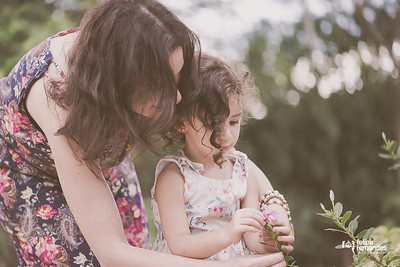
In Mexico, Women’s Day is not as big as Mother’s Day. And Father’s Day has been promoted just recently. But there’s no way to compare the dimension of both celebrations. Mother’s Day can stop the regular activities in most of the offices in the country.
Schools organize festivals every year to honor our mothers. Kids sing, dance, and create handmade gifts for their moms. And then, the celebration becomes a habit (some will prefer to call it a tradition) we reproduce forever. Yes, no matter the mother already passed away, we will keep celebrating her somehow. Usually, the celebration reaches cemeteries every year.

PackandGo.info @packandgoinfo @packandgo.info @packandgo.info
When is Mother’s Day in Mexico?
Mother’s Day in Mexico is every May, the 10th. The date is the same every year. The celebration goes on no matter it’s a working day or a rest day.

What is Mexican Mother's Day called?
Mexican Mother’s Day is called, in Spanish language, Día de las Madres. That is the official name of the holiday. However you also can hear Día de las Mamás.
What do Mexicans call Mom?
Mexicans have different ways to call mom.
- Mamá, it’s the standard Spanish word to mean mom.
- Madre is also a proper Spanish word to mean mother.
- Mami and mamita, diminutives of mamá (mommy or mom).
Now let’s go to informal, slang ways to call mom. Consider that the following nicknames are mostly used within informal contexts and they are not rude, but some moms may not like them. Sons and daughters use them to joke a bit with them.
- Má, an informal, short version of mamá. Commonly used when talking directly to her. “Má, where are you?”.
- Amá, another slang, short version of mamá. It was more common in the countryside but already is possible to hear it also in cities.
- Jefa or patrona, the boss in English. These are common and fun ways to call mother, meaning she is the one in charge, the boss of the family.
- La ley, the law in English. It underlines the importance of the mother in the family. She’s who rules, decides, who gives or denies permissions.
- La mera, mera, the big boss. It has a connotation of “bossy” that mothers may not like. But when the relationship is good, they understand their kids are just joking.
This can make you think women are powerful and very respected in Mexican society. But appearances are deceiving. Honestly, such respect or power is only delivered that way to mothers. And house and children care are the only kingdoms where women are allowed and even pushed to rule. The situation is different in the public and work contexts. Obviously, women participate and have more visibility every day. But motherhood is still a hard topic.

Statistics of domestic violence also contradict this supposed female power in the family.
Besides, this lack of balance originates toxic dictatorships in some families. Some popular telenovela scenes where judgmental mothers approve and disapprove their son’s and daughter’s adult decisions are unfortunately inspired by real cases.
Why is there Mother’s Day in Mexico?
There’s an official Mother’s Day in Mexico as a result of an initiative (1922) of Rafael Alducín, a journalist and founder of the Excelsior newspaper. Mother's Day already existed in different countries. His proposal was to choose a specific date to honor Mexican mothers. “Excélsior intends that May 10th be consecrated by the children to exalt, in life or in memory, those who gave them being (existence)”.
Later, President Álvaro Obregón and José Vasconcelos, Secretary of Education, backed the proposal together with the Catholic Church and the Red Cross.
The context here is key for you to have a clearer comprehension. The Mexican Revolution (1910-1920) was a conflict that radically transformed the economy, politics, and society. Women actively participated in the war not only taking care of children and wounded men but also on the battlefield. Some even fought disguised as men. Official narrators barely gave them credit for this, constraining their role to protect the children.
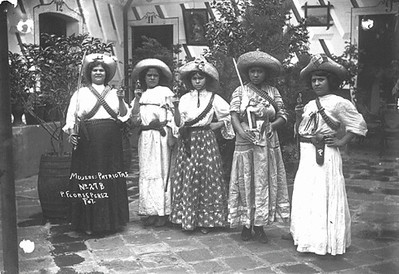
The first feminist voices began to be heard and grouped around 1915-1919. They were demanding social recognition, better conditions, sexual education, and birth control. Especially the last two demands weren’t taken well by conservatives in the country. For them, the highest women’s functions were giving birth and educating the children. Excelsior newspaper was an open supporter of this conservative way of thinking. Just like the Catholic Church.
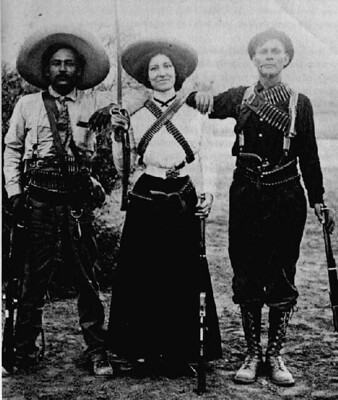
What’s Mother’s Day for Mexicans?
In simple terms, Mother’s Day is a celebration to honor women who are mothers or mother figures. The topic gets more complex because motherhood, maternal bonds, mother’s influence in society, family values, and even traces of the Catholic heritage also get involved.
If you ask Mexicans, pretty sure they will generally say the celebration is fair, good, and nice. But talking more particularly, it’s controversial because not every mother likes it and not all sons and daughters want to celebrate it. Basically, the issue is its origin, and the different meanings we attribute to the festivity or to the “mother” concept.
Here you have some opinions of Mother’s Day. All expressed by Mexicans (women and men).
“It’s insulting to celebrate women solely for giving birth. Still in the 21st century, there’s a try to point this is the only thing women are really good for”. Teresa, 31 years old.
“May 10th historically celebrates the selfless and sacrificed mother. The most convenient type of mother-woman for the macho society”. Laura, 56 years old.
“Mother’s Day is a hypocrite day. We put our mothers and wives on a throne for a day, and ask them to wash our dirty pants the next one”. Rodrigo, 41 years old.
“Many Mexican families live a cruel mother's dictatorship. If this is the only area where women are allowed to be, some can get really suffocated and suffocating rulers”. Gloria, 46 years old.
“These exaggerated mother’s worship means a lot of social pressure for women who don’t belong to the traditional profile of a sacrificed mother, only in charge of the kids. And even for men, because no matter what they do, they will never be as good fathers as mothers are”. Lorena, 51 years old.
“My father never wanted to be in charge of our education, health, etc. He gave our mother the control of the family only to avoid his responsibility”. José, 28 years old.
“My mother truly believed she had the power to decide every aspect of my life, based on the fact she gave me birth. I don’t talk to her 20 years ago”. Evelyn, 40 years old.
“Mothers are humans. They have hits and mistakes. To make them believe everything they do is ok just because they are mothers is really unfair”. Joaquín, 30 years old.
“To think you will delete your bad actions or the pain you cause with a new iron, sweater, or some roses is ridiculous. I don’t like May 10th”. Susana, 72 years old.
“I like the celebration but I hate the gifts. A washing machine, an iron? Does mother mean slave?”. Thalía, 27 years old.

Of course, many people celebrate to show authentic love and gratitude to their mothers. But that is the side of the coin that is always shown. And you can’t expect such a consensus about a human matter in a country as big and culturally diverse as Mexico is.
Who does celebrate Mother’s Day in Mexico?
Everybody can join the festivity, but especially those who have a mother or mother figure celebrate Mother’s Day in Mexico. Biological mothers, foster mothers, or women playing that role, living and dead, are honored on this day by their sons and daughters.

How do Mexicans celebrate Mother’s Day? - Mexican Mother’s Day Traditions.
Mexicans celebrate Mother’s Day by giving presents to their mothers and gathering the whole family at a party, brunch, or dinner. Pretty much what people do everywhere in the world. Mexican traditions you can observe are mariachi serenades, school festivals where kids perform musicals, poems, songs, etc. And there are special mass services for living and dead moms. People pray for the health and long life of their moms, and for the dead ones to rest in peace. Mariachi serenades and family gatherings also take place in cemeteries, around the mother’s tomb.
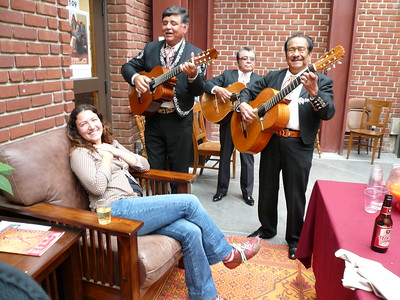
What are common Mother’s Day gifts in Mexico?
The list of common Mother’s Day gifts in Mexico can go really long. Basically, everything is possible. Budget and mother’s particular preferences define the type of present. A homemade cake or card, crafts, perfumes, all sizes of flower bouquets, TV sets, furniture, chocolates, clothes, shoes, accessories, jewelry, spa sessions, travels, restaurant gatherings, serenades (mariachi, norteño, banda, etc.), and so much more.
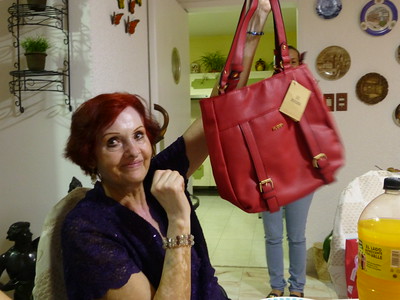
Home appliances are widely bought for mothers, stoves, laundry machines, vacuum cleaners, blender machines, irons, and so on. But these are the kinds of gifts some mothers don’t like because of their direct connection with the housework.

Conclusion.
We Mexicans love to celebrate and we love our mothers too. Both are big features of our identity. But what I learned from my own mother was, we must keep in mind a mother is a human and a woman with ambition and personal goals that her couple, sons and daughters should respect and in the best case, support. To be a mother is just a facet of her that shouldn’t cancel or limit the others.
Besides, a mother should be appreciated daily, not only on a single day of the year, created by the media, and without knowing well its origin or purpose. It’s through our daily actions that we can honor her best.
Finally, celebrating her for the right reasons is a great idea. You can make her really happy. Just choose a nice gift for her! Remember that home appliances can ruin her mood and the celebration.
Share your opinions with us and join PackandGo.info @packandgoinfo @packandgo.info @packandgo.info

